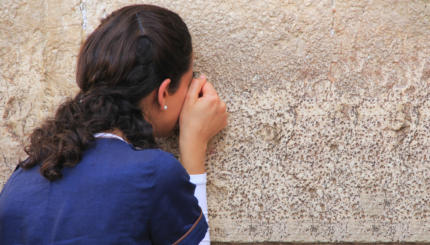Parapet (Hebrew, ma’akeh) is the small wall that has to be erected around a flat roof as a protection against people falling off. The law of the parapet is stated in the verse: ‘When you build a new house, you shall make a parapet for your roof, so that you do not bring bloodguilt on your house if anyone should fall from it (Deuteronomy 22:8).’
The parapet had to have a minimum size of 10 hand-breadths. The law of the parapet applies only to flat roofs on which people can walk.
The Talmud (Bava Kama 15b) records that the second-century teacher, Rabbi Nathan, extended the law of the parapet to prohibit keeping a vicious dog or a precarious ladder in the home. Obviously, it would apply today to the need to keep away from children medicines that could cause them harm or the failure to repair faulty electrical appliances. Another instance would be failing to check the brakes of an automobile.
The Talmudic Rabbis discuss the theological question of why this kind of care against accidents should be so important, since if the victim of the accident is destined to suffer harm it is bound to happen, and if it is not so destined it will not happen, even if no care is taken.
The stock reply to this kind of problem is that although it must have been destined, otherwise the accident would not have happened, it is wrong to be the instrument of divine providence in such a situation.
Reprinted from The Jewish Religion: A Companion, published by Oxford University Press.
Talmud
Pronounced: TALL-mud, Origin: Hebrew, the set of teachings and commentaries on the Torah that form the basis for Jewish law. Comprised of the Mishnah and the Gemara, it contains the opinions of thousands of rabbis from different periods in Jewish history.


